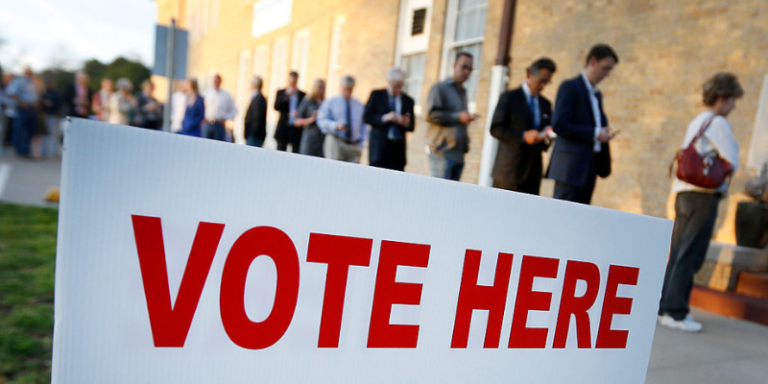Super Tuesday: The Biggest Day in Primary Voting
Super Tuesday is primary day for about a third of the nation’s population.
By: Sarah Cowgill | March 5, 2024 | 385 Words

(Photo by Ron Jenkins/Getty Images)
Since 1988, whoever won the presidential primaries and caucuses held on Super Tuesday in March (March 5, 2024) ended up the nominee for each political party. There is no day in the primary process with more states participating. And with the two most populous states included – California and Texas – it’s about one-third of the nation’s population.
Other states and jurisdictions voting include: Alabama, American Samoa, Arkansas, Colorado, Maine, Massachusetts, Minnesota, North Carolina, Oklahoma, Tennessee, Utah, Vermont and Virginia. These 15 states and territories have 35.2% of delegates up for grabs. By month end, tabulating February’s contests and the entire month of March matches, well over 50% of each party’s delegates will have been chosen during the caucuses and primaries. After Super Tuesday, many candidates begin dropping out to realign themselves with front runner(s), as what is next for those losing contenders is jockeying for the number two slot on the presidential ticket.
Super Tuesday also features eight states with open primaries, which adds to the prestige of any candidate dominating the day. An open primary allows all voters – regardless of party affiliation – to vote for their choice, also regardless of party affiliation. That means a Democrat could vote for a Republican in the primary, and easily switch back to voting Democrat in the general election.
 Another reason the field of candidates covet a successful Super Tuesday is due to the diverse geographical and social regions involved: It’s a melting pot of rural and urban, coastal states, and middle America, and a win is the first prediction of the electability of a candidate. Convincing wins on Super Tuesday traditionally propel candidates to their party’s nomination.
Another reason the field of candidates covet a successful Super Tuesday is due to the diverse geographical and social regions involved: It’s a melting pot of rural and urban, coastal states, and middle America, and a win is the first prediction of the electability of a candidate. Convincing wins on Super Tuesday traditionally propel candidates to their party’s nomination.
Despite the clear decision-making of the day, some candidates are stretched too thin and resort to what is known in campaign circles as “tarmac campaigning” spending only moments on the ground at the airport to deliver a quick wave and rallying cry before jetting off to the next location. The other criticism is that after Super Tuesday, some states and candidates feel the nomination is set and therefore believe their votes won’t matter.
But every vote does matter, and as Super Tuesday comes and goes, pay close attention to what the electorate has to say about the path they want America to pursue.
















